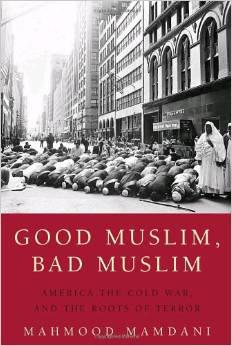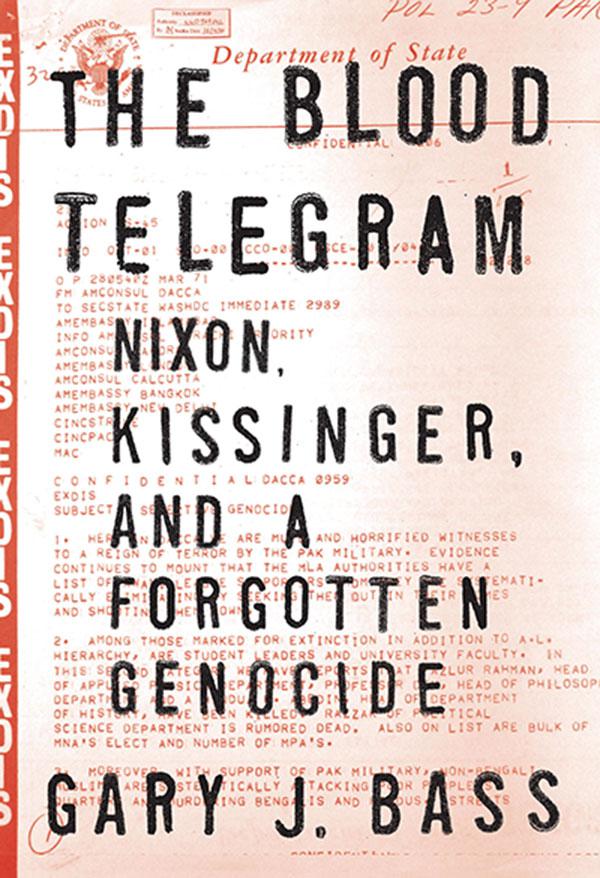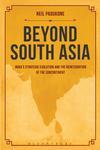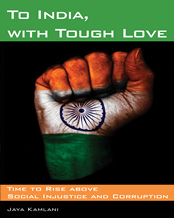|
| |
| FIRST ANNUAL IAAC LITERARY FESTIVAL |
in collaboration with The South Asia Institute,
Columbia University and India Abroad
NOVEMBER 7-9, 2014
|
|
|
November 8th
Session 2B
Hot off the press: Recent History in South Asia
Moderated by Mitra Kalita |
 |
Mahmood Mamdani
Good Muslim, Bad Muslim |
 Mahmood Mamdani has been the Herbert Lehman Professor of Government in the Departments of Anthropology and International Affairs, and Director of the Institute of African Studies at Columbia University. He received his Ph.D. from Harvard University in 1974 and specializes in the study of African history and politics. His works explore the intersection between politics and culture, a comparative study of colonialism since 1452, the history of civil war and genocide in Africa, the Cold War and the War on Terror, and the history and theory of human rights. His books include Citizen and Subject, When Victims Become Killers and Good Muslim Bad Muslim: America, The Cold War, and the Roots of Terror. Mahmood Mamdani has been the Herbert Lehman Professor of Government in the Departments of Anthropology and International Affairs, and Director of the Institute of African Studies at Columbia University. He received his Ph.D. from Harvard University in 1974 and specializes in the study of African history and politics. His works explore the intersection between politics and culture, a comparative study of colonialism since 1452, the history of civil war and genocide in Africa, the Cold War and the War on Terror, and the history and theory of human rights. His books include Citizen and Subject, When Victims Become Killers and Good Muslim Bad Muslim: America, The Cold War, and the Roots of Terror.
|
|
| |
| Synopsis |
 In this brilliant look at the rise of political Islam, the distinguished political scientist and anthropologist Mahmood Mamdani brings his expertise and insight to bear on a question many Americans have been asking since 9/11: how did this happen? Good Muslim, Bad Muslim is a provocative and important book that will profoundly change our understanding both of Islamist politics and the way America is perceived in the world today. In this brilliant look at the rise of political Islam, the distinguished political scientist and anthropologist Mahmood Mamdani brings his expertise and insight to bear on a question many Americans have been asking since 9/11: how did this happen? Good Muslim, Bad Muslim is a provocative and important book that will profoundly change our understanding both of Islamist politics and the way America is perceived in the world today.
|
| |
|
| |
Gary Bass
The Blood Telegram
|
| Gary Bass is the author of The Blood Telegram: Nixon, Kissinger, and a Forgotten Genocide, which was a Pulitzer Prize finalist in general nonfiction and won the Lionel Gelber Prize; Freedom's Battle: The Origins of Humanitarian Intervention; and Stay the Hand of Vengeance: The Politics of War Crimes Tribunals. He is a professor of politics and international affairs at Princeton University. A former reporter for The Economist, he has written often for the New York Times, and has also written for The New Yorker, the Washington Post, the Los Angeles Times, the Boston Globe, The New Republic, Foreign Affairs, Foreign Policy, Slate, and other publications. |
| |
| Synopsis
|
 Giving an astonishing inside view of how the White House really works in a crisis, The Blood Telegram is an unprecedented chronicle of a pivotal but little-known chapter of the Cold War. Gary J. Bass shows how Nixon and Kissinger supported Pakistan’s military dictatorship as it brutally quashed the results of a historic free election. The Pakistani army launched a crackdown on what was then East Pakistan (today an independent Bangladesh), killing hundreds of thousands of people and sending ten million refugees fleeing to India-one of the worst humanitarian crises of the twentieth century.
Giving an astonishing inside view of how the White House really works in a crisis, The Blood Telegram is an unprecedented chronicle of a pivotal but little-known chapter of the Cold War. Gary J. Bass shows how Nixon and Kissinger supported Pakistan’s military dictatorship as it brutally quashed the results of a historic free election. The Pakistani army launched a crackdown on what was then East Pakistan (today an independent Bangladesh), killing hundreds of thousands of people and sending ten million refugees fleeing to India-one of the worst humanitarian crises of the twentieth century. |
| |
|
| |
Neil Padukone
Beyond South Asia |
 Neil Padukone is the author of "Beyond South Asia: India’s Strategic Evolution and the Reintegration of the Subcontinent" (Bloomsbury, 2014). He is a former Public Service Fellow at the Harvard University’s Kennedy School of Government, and a geopolitics fellow at the Takshashila Institution. A former foreign affairs columnist for the Christian Science Monitor and South Asia commentator at Russia Today News, Neil’s work has been published in The Atlantic, Foreign Policy, the Journal of International Affairs, Newsweek’s Daily Beast, The National Interest, South Asian Survey, the World Affairs Journal, the Huffington Post, and the Economic and Political Weekly, among others.
Neil Padukone is the author of "Beyond South Asia: India’s Strategic Evolution and the Reintegration of the Subcontinent" (Bloomsbury, 2014). He is a former Public Service Fellow at the Harvard University’s Kennedy School of Government, and a geopolitics fellow at the Takshashila Institution. A former foreign affairs columnist for the Christian Science Monitor and South Asia commentator at Russia Today News, Neil’s work has been published in The Atlantic, Foreign Policy, the Journal of International Affairs, Newsweek’s Daily Beast, The National Interest, South Asian Survey, the World Affairs Journal, the Huffington Post, and the Economic and Political Weekly, among others.
|
| |
| Synopsis |
 Beyond South Asia traces the evolution of India\'s strategic thinking since 1947, comprehensively analyzing New Delhi’s foreign policy. The book begins with India’s failed attempt to unite and dominate the subcontinent following independence, leading to distrust in South Asia. Padukone then explores how this worldview has shifted as India, needing markets, energy resources, and ways to balance against China, has developed economic and military ties in Central and Southeast Asia, the Middle East, Africa, the southern Indian Ocean, and beyond. To do so has required more stability in South Asia, leading to enhanced cooperation and an economic reintegration of the subcontinent---including a burgeoning détente with Pakistan. This in-depth analysis provides a window on the domestic and regional factors that drive India, a key driver of global politics. Written in accessible prose, it will be of use to students and specialists of Indian foreign policy, South Asian politics, international relations, and security studies, and to anyone interested in the future of AfPak, the Indian Ocean region, and emerging Asia.
Beyond South Asia traces the evolution of India\'s strategic thinking since 1947, comprehensively analyzing New Delhi’s foreign policy. The book begins with India’s failed attempt to unite and dominate the subcontinent following independence, leading to distrust in South Asia. Padukone then explores how this worldview has shifted as India, needing markets, energy resources, and ways to balance against China, has developed economic and military ties in Central and Southeast Asia, the Middle East, Africa, the southern Indian Ocean, and beyond. To do so has required more stability in South Asia, leading to enhanced cooperation and an economic reintegration of the subcontinent---including a burgeoning détente with Pakistan. This in-depth analysis provides a window on the domestic and regional factors that drive India, a key driver of global politics. Written in accessible prose, it will be of use to students and specialists of Indian foreign policy, South Asian politics, international relations, and security studies, and to anyone interested in the future of AfPak, the Indian Ocean region, and emerging Asia.
|
| |
|
| |
Jaya Kamlani
To India, With Tough Love |
 Jaya Kamlani is an Atlanta based non-fiction author and social advocate. Her debut non-fiction book, “To India, with Tough Love” (2013) was written to promote public awareness of social, economic and environmental issues impacting India as well as sustainable solutions which can be adapted in the country and across the globe. Other books include her recently published memoir, “Scent of Yesterday” (2014) and her upcoming poetry collection (2015). Prior to her writing career, Jaya was a senior technology consultant in Silicon Valley and graduate of St. Xavier's College, Mumbai. For more info, visit www.jayakamlani.com Jaya Kamlani is an Atlanta based non-fiction author and social advocate. Her debut non-fiction book, “To India, with Tough Love” (2013) was written to promote public awareness of social, economic and environmental issues impacting India as well as sustainable solutions which can be adapted in the country and across the globe. Other books include her recently published memoir, “Scent of Yesterday” (2014) and her upcoming poetry collection (2015). Prior to her writing career, Jaya was a senior technology consultant in Silicon Valley and graduate of St. Xavier's College, Mumbai. For more info, visit www.jayakamlani.com |
| |
| Synopsis |
 How deep does the river of corruption run in India? Can a country truly evolve if its citizens relentlessly pursue economic growth regardless of social consequences? To India, with Tough Love is a thought provoking book that portrays a slice of India often overlooked by mainstream media. Jaya Kamlani’s colorful narrative of her personal journey through the villages and city slums brings a greater human understanding to social issues and the impact of globalization. Her extensive research shows how economic development and widespread corruption have fanned the flames of India's cardinal sins -- toxic environment, poor sanitation, farmer suicides, caste apartheid, extreme poverty, injustice to women, and child exploitation. The book concludes with inspiring examples of social entrepreneurs who are driving change in India. While addressing the root causes of social injustices, the author acknowledges that many of these problems are universal. She reminds us that human rights and environmental issues cannot be ignored for the sake of growth if meaningful progress is to be achieved in any country. How deep does the river of corruption run in India? Can a country truly evolve if its citizens relentlessly pursue economic growth regardless of social consequences? To India, with Tough Love is a thought provoking book that portrays a slice of India often overlooked by mainstream media. Jaya Kamlani’s colorful narrative of her personal journey through the villages and city slums brings a greater human understanding to social issues and the impact of globalization. Her extensive research shows how economic development and widespread corruption have fanned the flames of India's cardinal sins -- toxic environment, poor sanitation, farmer suicides, caste apartheid, extreme poverty, injustice to women, and child exploitation. The book concludes with inspiring examples of social entrepreneurs who are driving change in India. While addressing the root causes of social injustices, the author acknowledges that many of these problems are universal. She reminds us that human rights and environmental issues cannot be ignored for the sake of growth if meaningful progress is to be achieved in any country. |
| |
|
| |
| Mitra Kalita |
 S. Mitra Kalita is the ideas editor at Quartz, and behind some of the global economy site's most viral content. She worked previously at The Wall Street Journal, where she oversaw coverage of the Great Recession, launched a local news section for New York City and reported on the housing crisis. She also launched Mint, a business paper in New Delhi, and has previously worked for the Washington Post, Newsday and the Associated Press. She is the author of three books related to migration and globalization, and speaks seven languages (but only four of them well). She has taught at St. John's, Columbia and UMass-Amherst, and previously served as president of the South Asian Journalists Association. She is an adjunct fellow at the Poynter Institute and lectures around the world everything from digital journalism to diversity to India's role in the new global economy. S. Mitra Kalita is the ideas editor at Quartz, and behind some of the global economy site's most viral content. She worked previously at The Wall Street Journal, where she oversaw coverage of the Great Recession, launched a local news section for New York City and reported on the housing crisis. She also launched Mint, a business paper in New Delhi, and has previously worked for the Washington Post, Newsday and the Associated Press. She is the author of three books related to migration and globalization, and speaks seven languages (but only four of them well). She has taught at St. John's, Columbia and UMass-Amherst, and previously served as president of the South Asian Journalists Association. She is an adjunct fellow at the Poynter Institute and lectures around the world everything from digital journalism to diversity to India's role in the new global economy.
Born in Brooklyn, Mitra was raised in Long Island, Puerto Rico and New Jersey-with regular trips to her grandparents’ villages in Assam, India. She lives (and eats) in the Jackson Heights neighborhood of New York City, along with her artist husband and two daughters. She tweets @mitrakalita and her website is www.mitrakalita.com. She is spending this year doing a fellowship at Columbia and reporting a book on school choice through the lens of one New York City neighborhood. More of her work can be read at: http://qz.com/author/smkalita/ and http://mitrakalita.com/articles-page/ |
| |
|
|
|

